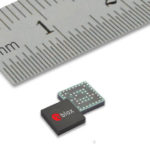The Federal Communications Commission (FCC) is inviting public comments on the European Commission’s request for a waiver of licensing requirements applicable to Galileo receivers in the United States. Comments are due Feb. 21. Read the notice here.
If the waiver is approved, Galileo-capable receivers won’t need to be licensed in the U.S. At present, FCC rules require that receivers operating with non-U.S.-licensed space stations obtain a license. Read more…



